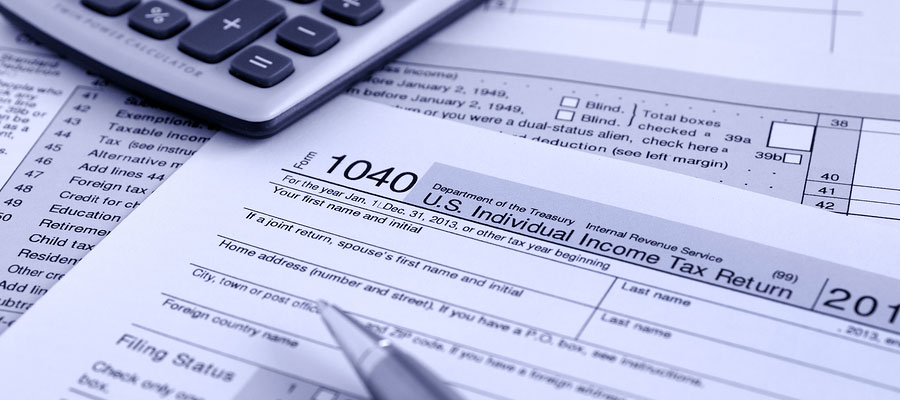
Significant Tax Changes
12-29-2020Tax InformationHere is a review of significant changes that may impact you for the tax year 2020 filing season from the:
- Coronavirus Aid, Relief and Economic Security (CARES) Act
- Families First Coronavirus Response Act
- Setting Every Community Up for Retirement Enhancement (SECURE) Act
- Taxpayer Certainty and Disaster Tax Relief Act of 2019.

Are expenses paid with PPP loan proceeds deductible?
11-19-2020Tax InformationThe U.S. Treasury Department and Internal Revenue Service (IRS) released guidance yesterday (November 18, 2020) clarifying the tax treatment of expenses where a Paycheck Protection Program (PPP) loan has not been forgiven by the end of the year the loan was received.
Since businesses are not taxed on the proceeds of a forgiven PPP loan, the expenses are not deductible. This results in neither a tax benefit nor tax harm since the taxpayer has not paid anything out of pocket.
READ MORE
IRS view of Vacation Home Losses
10-22-2020Tax InformationGenerally, if you rent out a vacation home while you not using it personally, you can deduct expenses to offset taxable income from the rental. This includes mortgage interest, property taxes, repairs, utilities, insurance, etc. (Mortgage interest and property taxes are subject to additional rules for a qualified personal residence).
You might even be able to deduct a loss on your income tax return in that year if your personal use of the vacation home does not exceed the greater of (a) 14 days or (b) 10% of the time the home is rented out.
READ MORE
Refund Status and Tax Withholding Tools
07-23-2020Tax InformationThe original tax filing deadline has passed. Here are a couple of resources available for individual tax payers to get quick answers for yourself for free.
Refund Status
You can check on your refund using the IRS Where’s My Refund? tool. It is available on IRS.gov and the IRS2Go app. If you do not have access to a computer can call 800-829-1954. The tool updates once daily, so there’s no need to check more often. You will need:

My dead relative received a stimulus check. What do I do?
05-10-2020Tax InformationOn May 6, 2020, the IRS came out with the following guidance for Economic Stimulus checks sent to dead people. The whole answer is at www.irs.gov/coronavirus/economic-impact-payment-information-center#more (See question 41)
In summary,
A Payment made to someone who died before receipt of the Payment should be returned to the IRS in full. For payments made to joint filers and one spouse had not died before receipt of the Payment, you only need to return the portion of the Payment made on account of the decedent. This amount will be $1,200 unless adjusted gross income exceeded $150,000.
READ MORE
IRS Economic impact payments: What you need to know
03-31-2020Tax InformationThe Treasury Department is working on a web-based portal (www.irs.gov) that will allow individuals to submit direct deposit details in order to “receive payments immediately as opposed to checks in the mail.” Treasury Secretary Steven Mnuchin said Friday that people can expect to receive their checks in three weeks – April 17 is when the direct deposits will go into people’s accounts. A check in the mail could take longer.
READ MORE
IRS Economic impact payments: What you need to know
03-31-2020Tax InformationThe Treasury Department is working on a web-based portal (www.irs.gov) that will allow individuals to submit direct deposit details in order to “receive payments immediately as opposed to checks in the mail.” Treasury Secretary Steven Mnuchin said Friday that people can expect to receive their checks in three weeks – April 17 is when the direct deposits will go into people’s accounts. A check in the mail could take longer.
READ MORE
Charitable Donations
02-20-2020Tax InformationWhen it comes to tax planning, there are few more emotionally charged decisions than those around charitable giving. People tend to have deep, personal attachments to the causes they support and may have been donating to their chosen charity for years or even decades. They see their donations as a vital way to give back to society and to feel connected to a broader community, whether it be on a local, national or even spiritual level.
Any good financial adviser understands that it’s hard for clients to make a pragmatic cost-benefit analysis around such personal decisions. However, it’s our responsibility to make sure that clients understand how to optimize their charitable donations and ensure that they’re getting the most bang for their buck, both for their charitable causes and their own personal tax benefit. And there’s no better time to do that than at the beginning of the year, after the mad scramble around the holidays has died down.
READ MORE
The need to properly document travel deductions for tax purposes
02-06-2020Tax InformationYou are generally entitled to deduct the cost of your travel expenses, within certain limits. But the tax law imposes strict substantiation requirements. Recently, the Tax Court denied a deduction because the taxpayer didn’t establish the requisite relationship between his business and the travel expenses. (Near, TC Memo 2020-10, 1/14/20)
Most self-employed individuals can deduct ordinary and necessary expenses incurred when traveling on business. This includes transportation costs back and forth from your business destination, as well as any business-related expenses at your business destination, such as lodging. The full amount is deductible if the trip is completely business-related.
READ MORE
Key Changes to 2019 Arizona Income Tax Returns
01-30-2020Tax InformationThe individual income tax filing season for state and federal returns opened this week. Here are some key changes when filing for 2019 tax year.
- Matches the federal standard deduction amount
- $12,200 single/married filing separate
- $18,350 head of household
- $24,400 married filing joint